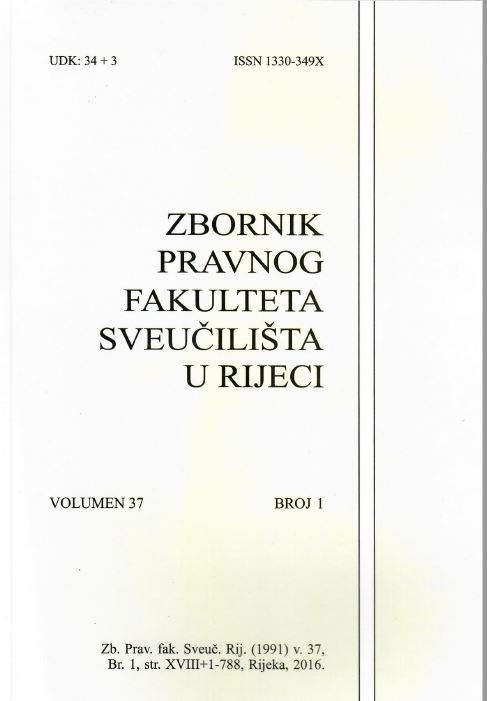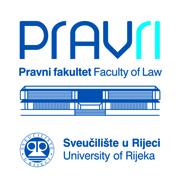INADMISSIBLE EVIDENCE IN CIVIL PROCEDURE
DOI:
https://doi.org/10.30925/zpfsr.37.1.1Keywords:
civil procedure; inadmissible evidence; exclusion of evidenceAbstract
This paper examines the exclusion of specific means of evidence as instruments for determining the object of evidence, as well as the taking of evidence in the framework of the Croatian civil procedure law. The introduction lays the grounds for classifying and qualifying exclusion of evidence (general, special; absolute, relative; removable, irremovable; direct, indirect), after which greater attention is paid to the so called absolute and relative type; exclusionary evidence of the direct relative type pertaining to the establishing of facts, and evidence dismissals. With regard to the indirect relative type, the paper examines exclusionary evidence concerning the object of evidence. The remainder of the paper focuses on illegally obtained evidence, while outlining the constitutional, statutory, judicature and doctrinaire premises of bearing for such evidence. Subsequently, the question of evidence obtained in violation of the Constitutional guarantee of respect and legal protection of private and family life, dignity, reputation and honour, as well as evidence obtained by breach of the Constitutional guarantee of freedom and secrecy of correspondence and all other forms of communication, and in violation of the right to safety and privacy of personal data, are discussed too. In addition, the paper analyses the institutions of preclusion of evidence and the so called informative evidence. Concluding, the author points to a lacking regulation of inadmissible evidence within the Croatian civil procedure law, underlining the need to determine de lege ferenda legal requirements with a view to operationalizing inadmissible evidence within the Croatian civil procedure law.
Additional Files
Published
How to Cite
Issue
Section
License
Collected Papers is an open access journal. Journal does not charge article processing charges (APC) to authors. It is licensed under CC BY-NC licence 4.0.
Collected Papers of the Law Faculty of the University of Rijeka" is an Open Access journal. Users are allowed to read, download, copy, redistribute, print, search and link to material, and alter, transform, or build upon the material, or use them for any other lawful purpose as long as they attribute the source in an appropriate manner according to the CC BY licence.
The papers published in "Collected Papers of the Law Faculty of the University of Rijeka" can be deposited and self-archived in the institutional and thematic repositories providing the link to the journal's web pages and HRČAK.
Upon acceptance of the manuscript for publication by this journal, the author can publish same manuscript in other journals only with the permission of the Editorial Board (secondary publication). A repeated publication should contain a notice as to where the manuscript was originally published.



